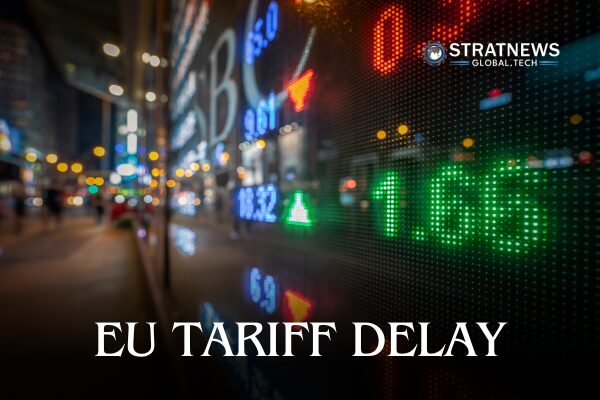Asian Markets Hold Steady as Trump Delays EU Tariff Threat
Stock markets across Asia remained stable on Monday, while the euro gained strength. This came after US President Donald Trump unexpectedly postponed his plan to impose 50% tariffs on EU goods. The new deadline for trade talks is now set for 9 July, extending the earlier deadline of 1 June.
The delay followed a request from European Commission President Ursula von der Leyen, who asked for more time to secure a fair agreement. Trump’s decision offered a temporary break from his unpredictable trade tactics, providing markets with a brief sense of relief.
Investors Stay Cautious Amid Trade Policy Shifts and Trump Tarrifs
Market sentiment had been recovering after last month’s sharp selloffs. Pause on tariff threats by Trump, along with deals made with Britain and China, had lifted hopes for improved trade relations. However, the latest developments reminded investors of the uncertainty still surrounding US trade policy.
Analysts noted that many investors are shifting funds away from the US. Concerns over a possible US recession and its global effects have encouraged a move towards European and Asian markets.
In a market note, Commerzbank said Friday’s announcement once again exposed the inconsistent nature of Trump’s policy approach. This unpredictability has made it difficult for markets to anticipate next steps.
Currency Markets Respond to Shift in Sentiment
The euro rose by 0.35% to $1.1404, its strongest level since late April. Currencies that typically reflect investor risk appetite, like the Australian and New Zealand dollars, also strengthened—by 0.37% and 0.45%, respectively.
Meanwhile, the dollar index fell to its lowest point since 22 April. Analysts described the trend as part of a broader “Sell America” narrative. OCBC strategist Christopher Wong highlighted that ongoing policy uncertainty and declining US economic dominance are denting medium-term confidence.
Light Trading and Economic Indicators in Focus
Trading volumes on Monday were lower due to public holidays in the US and UK. In Japan, the Nikkei index rose, with shares in Nippon Steel climbing 2.3%. The gain followed Trump’s endorsement of the company’s $14.9 billion bid for US Steel.
Japan’s super-long bond yields drew attention, with inflation data due later this week likely to influence the Bank of Japan’s policy direction. Yields had reached record highs last week.
Moody’s downgrade of the US credit rating and poor debt auction results in both the US and Japan reignited concerns over rising debt levels in major economies.
China’s markets were less positive. The blue-chip CSI300 index dropped by 0.7%, and Hong Kong’s Hang Seng Index slipped 1%. Shares in Chinese Apple suppliers declined following Trump’s threat of a 25% tariff on imported iPhones bought by US consumers.
Despite these concerns, recent data suggesting the global economy is faring better than feared has provided some reassurance. Upcoming inflation data from Japan and Germany, along with the US Federal Reserve’s preferred personal consumption expenditure data, will be closely watched.
On the commodities front, crude oil prices edged higher, while gold pulled back slightly from its two-week peak.
with inputs from Reuters


